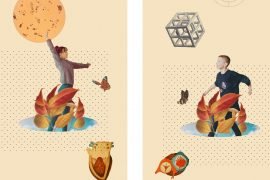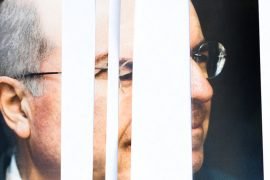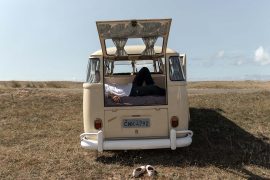With a simple strum of his inseparable acoustic guitar, he captures your attention. And when the magnetic hook comes (on the left, because he’s left-handed) of his melodic songs …, you’re stuck. Young Joe Dolman has an innate ability to compose pieces with captivating harmonies. At 22, he oozes as much innocence as maturity. Watch out, Ed Sheeran! His debut in Spain is promoted by the Festival Músiques Sensibles de Barcelona, at the Petit Palau (Palau de la Música), on Saturday, November 10th. It is the natural cycle if one pauses at songs like Close to home and its powerful video clip about the hardness of mental illnesses. Another key piece of his songbook is Something beautiful, in which he describes how difficult it is to build a solid career in the music industry, and the great deal of times you need someone to help you.
The first steps of Joe Dolman go back to when he was an elementary school boy who wanted to make his Irish grandmother happy and learned to play traditional songs with the mandolin and the typical flute of the country (tin whistle). Then, finally, he got a guitar and a few minutes later was playing Here comes the sun of the Beatles, thanks to a YouTube tutorial. And at the age of 14, he decided to work in pubs and on the streets doing covers.
Without taking into account the musical fondness of your grandmother, is there artistic background in your family?
JD: My mother knows how to sing, but nobody at home studied music nor chose it as a career.
What was your first composition? Do you remember who you showed it to and how did that person react?
JD: Well … I can’t remember the title of the first song I wrote. What I do not forget is that I showed it to a friend at school and he told me: this is crap. And he was right! Since then I always try to improve my art [laughs].
Your precocity is evident. In 2014 you already faced a crowd, on the great stage of Hyde Park. How do you remember this experience?
JD: It was amazing to play before so many people being so young. Yes, I enjoyed it immensely. And it was inspiring: it encouraged me to continue fighting for my dreams, to try to achieve success.
Do the comparisons bother you? Because many mention your name and quickly turn to artists like James Bay, Passenger, Lewis Watson, Damien Rice …
JD: I’m delighted to be compared to any of them. They are fantastic! Everyone finds similarities in the world of music, so not only do I not complain, but I take it as a compliment.
What will we see in Barcelona? What repertoire and what training do you come with?
JD: I will sing my own songs with my acoustic guitar. You can expect pieces that speak of love, of dreams … and that I hope you will sing with me.
What do you know about the audience here?
JD: It will be the first time that I perform in Spain, so not much. Of course, I’m sure it will be a real pleasure.
The festival that has invited you, Sensitive Music, gives 10% of the money raised to non-profit organizations, some of which ensure the integration and well-being of the mentally ill. I say this because one of your best pieces, Close to home, tries to pop rhythm to a subject that very few artists dare to address. And you do it in the video clip in a transgenerational way and without taboos. How was this composition born?
JD: First of all I thought about the title of the song, and then what it means to be close to home. My mother worked in a nursing home and cared for many patients with dementia, affected by Alzheimer’s … And I tried to write the song from her perspective.
Typically, Joe Dolman would present a song telling that when he left school and university he picked up his mother from work and talked to the elderly with senile dementia. And one of them told him he could not understand why he was in that house; that the attention he received was given to someone else, not to him.
You have published two EP of independent form and still you have managed to be in the top 10 of lists of successes of the United Kingdom and the USA. How do you rate such a feat?
JD: Well, I’m still hallucinating. And, above all, very grateful that my music has this support.
With the support of the public and broadcasters like BBC Radio 1 …
JD: Yes, the BBC has a big project to help emerging artists. And I was lucky that my song was chosen to sound on the BBC radio on the Huw Stephens program.
One of your EP, Live at All Saints Church, was recorded live in a church (the title gives more than clues). How did the idea come about? You are Catholic?
JD: Yes, I am a Catholic and went to a Catholic school and institute. I have always thought that churches are beautiful buildings and that they foster recordings with a fantastic acoustic sound. In addition, a very special atmosphere is created and the way to enjoy the concert is different for everyone.
From the church to the pulpit of social networks, which you use with assiduity and with wisdom. It is common for people to bless you with all kinds of questions during, for example, your Insta Live. What is the most magical of these 21st century tools?
JD: I love being able to connect and talk with people from all over the world by pressing just one button. I like to hold conversations with the fans and get their opinions. In fact, I could be talking to them all day. And not only this: I’ve met many amazing people thanks to sharing my music online.
The best assets of Joe Dolman are his live shows, so a part from seeing him behind the screen, I recommend you do not miss his performances. And stay with his name. You can say ‘I saw Joe before he became a star’.


















